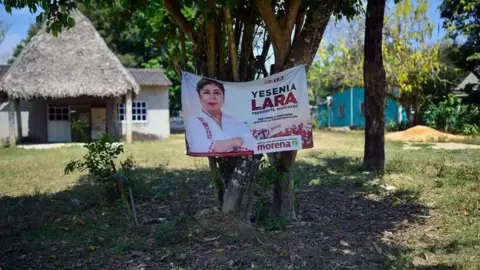LIVE on TikTok: The Shocking Story of Valeria Márquez in Mexico
TikTok has changed the way people communicate, influence, and connect around the world. In Mexico, TikTok’s impact on society is undeniable, providing both opportunities and unforeseen dangers for its most visible users. A recent tragedy involving Mexican influencer Valeria Márquez has rekindled urgent conversations about online safety, violence against women, and the responsibilities of social platforms in the modern digital age.

The Rise of TikTok and Influencer Culture in Mexico
Over the past few years, TikTok has become a dominant force for Mexican youth seeking entertainment, self-expression, and inspiration. Influencers like Valeria Márquez have built large, loyal followings by sharing beauty tutorials, lifestyle content, and real-life adventures. With over 100,000 followers on TikTok and more on Instagram, Valeria was a recognized figure in the beauty community, as highlighted by BBC News.
The Tragic Incident Live on TikTok
On an otherwise normal day at her salon in Zapopan, Jalisco, Márquez began live streaming for her TikTok fans. What started as a routine session quickly turned tragic. Moments after receiving a stuffed animal delivered by a courier she did not recognize, she was fatally shot during the broadcast. The incident sent shockwaves throughout Mexico and the global social media landscape. The investigation quickly garnered attention, with authorities treating the crime as a suspected femicide—violence targeting women because of their gender. For further details on the event and official responses, read the full report by CNN.
Authorities’ Response and the Community Impact
Mexican authorities have faced pressure to act swiftly in response to Valeria’s murder. The local prosecutor's office suggested the killing appeared to be committed by a hired assailant, with evidence supporting premeditation. The incident also reignited national debates about gender-based violence and online harassment, as covered by Yahoo News. These tragedies underscore the risks faced by public figures in Mexico, especially women who are often targets of both online and offline threats.
Online Safety and the Role of TikTok
While TikTok offers immense exposure and career opportunities, it also exposes influencers to new forms of risk. TikTok and other platforms continue to refine moderation and safety protocols, but many users still face harassment, threats, and, in rare cases, real-world violence. Valeria’s story is a somber reminder that the convergence of digital fame and real-life threats is a growing concern. Users and platforms must collaborate to foster safer online environments.
Conclusion: Lessons from a TikTok Tragedy
Valeria Márquez’s story moves far beyond the digital world of TikTok. It calls for greater discussion about user safety, support from law enforcement, and measures platforms must take to protect influencers and everyday users alike. As TikTok remains part of daily life for millions of Mexicans, this incident should catalyze positive change—raising awareness, demanding justice, and building stronger protections for all.
For in-depth coverage of this story and its context, don’t miss the comprehensive articles on BBC News, CNN, and Yahoo News.